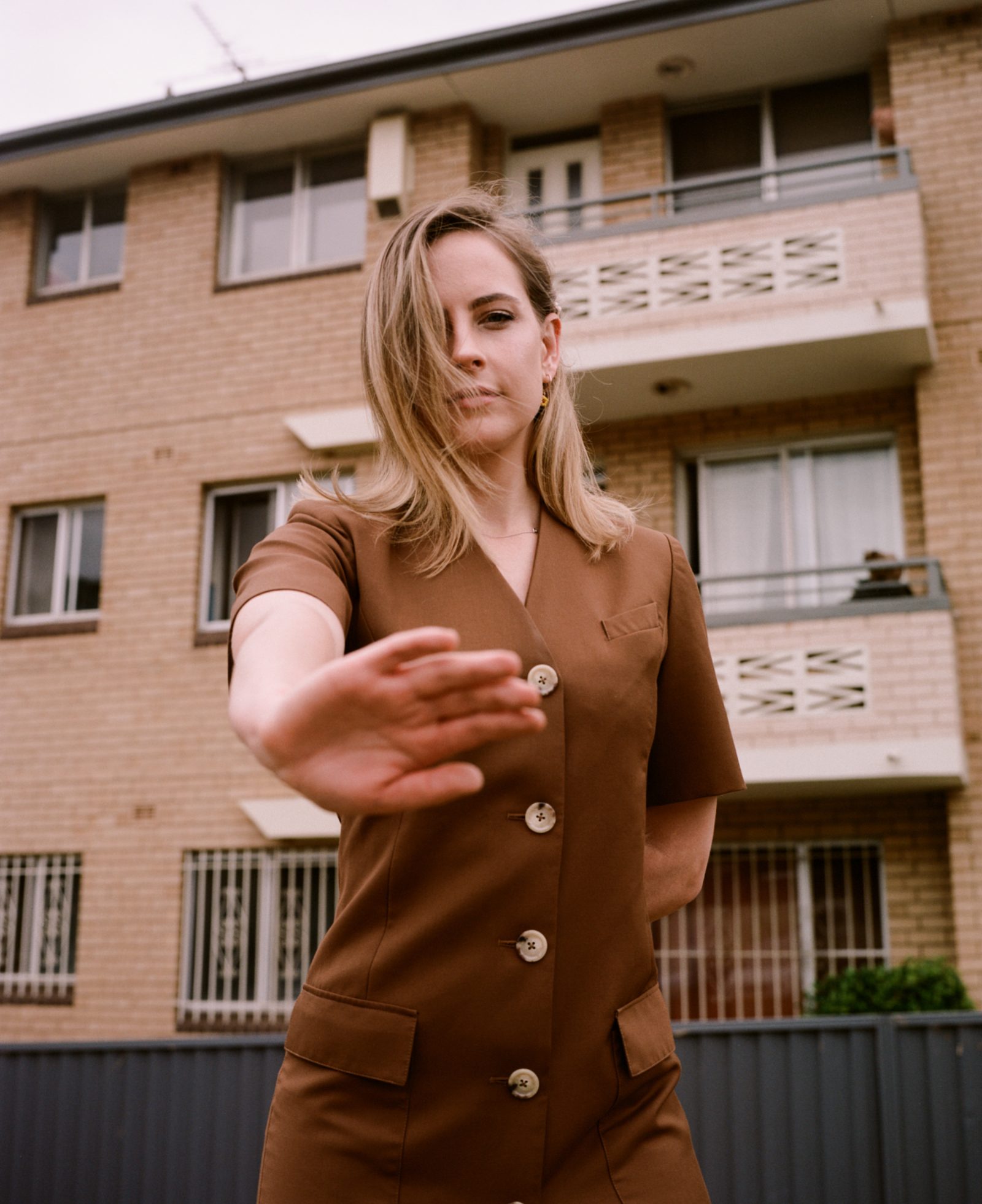Photo Jonno Revanche for Double Double
CW: abortion, sexual assault
“I’ve never had an abortion,” I corrected another friend.
“I just assumed you had because you’re so obsessed with it.”
They mentioned that I had barely reported on anything else for years.
If you report on reproductive rights and gendered violence for long enough you will receive abusive emails, unhinged tweets, bible extracts, foetus pictures, a rape threat or three and a two-thousand-and-something-word blog post titled “Dear Gina, You’re Helping Women Kill Their Babies” authored by the first person ever convicted for breaching a safe-access zone outside an abortion clinic.
But this comment offended me more than any of that, not because I was clutching pearls or rosary beads — statistically I easily could have terminated a pregnancy — but because I was indignant about the implication buried in the assumption, which would be made again by others.
An obsession with your subject matter is what makes a good beat reporter. I scanned through all the men I knew who had distinct rounds and struggled to imagine a comparable presumption of a vested interest or personal attachment because of their dedication — the court reporter who must have been a victim or perpetrator of a crime, the business journalist who must have a giant stock portfolio, the industrial relations reporter who must have once been unfairly dismissed.
This obsession with your specialty was only personal, even pathological, if you were a woman writing about issues that predominantly affected women. The hundreds of stories I had written couldn’t be skill, nor dedication and certainly not expertise, it was instead a kind of sad solipsism.
I think if a reasonable person is reading your journalism as a commentary, activism or a pet project, you should evaluate whether you’ve adequately presented the facts as clearly and dispassionately as possible. I never discussed my personal opinion on abortion and I wouldn’t write an opinion piece on the issues I covered until I’d moved on from a job reporting on it full-time. Journalists are remarkably thin-skinned, particularly when their professionalism is called into question, but even for a certified sook I knew my indignation was disproportionate. I now realise that it was because I believed that a journalist — even one who had experienced the phenomenon they were documenting — can be moved by their subject matter and remain committed to presenting the truth as best they can.
A woman in Adelaide who waited days in hospital to terminate a wanted but unviable pregnancy; a woman in Albury who cancelled her surgical abortion because she couldn’t enter the clinic as her relative was protesting outside; a woman in Hobart who paid more than $4000 to fly interstate for an abortion and was then fired over her online reproductive rights activism; a woman in Narrabri who was turned away from three hospitals closest to her and drove over night to Newcastle for a D&C after a failed medical abortion, a woman in Sydney who was told if she kept her pregnancy she would have help with her visa; a politician in Canberra who had to terminate a pregnancy at 21 weeks for a foetal anomaly and cried in parliament as she called out her colleagues for labelling her a murderer; a woman in Brisbane who was harassed outside a clinic as she tried to reach the door to terminate a pregnancy, which was the result of a rape.
I haven’t had an abortion but the truth is I was and still am personally affected by the countless women I’ve interviewed and it hasn’t made me a less scrupulous or skeptical journalist.
A well-meaning man with decades more experience than me once encouraged me to change rounds ‘soon’ and do something ‘harder-hitting’ before I was ‘pigeonholed’ as a journalist who only wrote about ‘women’s stuff’.
It stung and I still regret taking the advice in the way I’d been conditioned to, with a grateful smile.
I wish I’d said there might not be anything more political than the regulation of a body by the state. I wish I’d said that there might not be anything ‘harder-hitting’ than failures in health bureaucracy, social policy, criminal legislation and yawning inequities between women from different economic, geographical, social and cultural groups. I wish I’d said that the only people who would see me as having written myself into a corner were those who saw my professional dedication as a gendered fixation. It isn’t.
If this raises any issues for you, help is available:
Sexual Assault Crisis Line (Victoria) 1800 806 292 www.casa.org.au
Lifeline 13 11 14 (24 hours a day, 7 days a week) www.lifeline.org.au
 Gina Rushton is a journalist who has written for BuzzFeed News, The Guardian, The Monthly, The Saturday Paper, Crikey, and The Australian. She is a Royal Australian and New Zealand College of Obstetricians and Gynaecologists media excellence award winner and Australian Human Rights Commission media award finalist for her coverage of reproductive rights.
Gina Rushton is a journalist who has written for BuzzFeed News, The Guardian, The Monthly, The Saturday Paper, Crikey, and The Australian. She is a Royal Australian and New Zealand College of Obstetricians and Gynaecologists media excellence award winner and Australian Human Rights Commission media award finalist for her coverage of reproductive rights.

